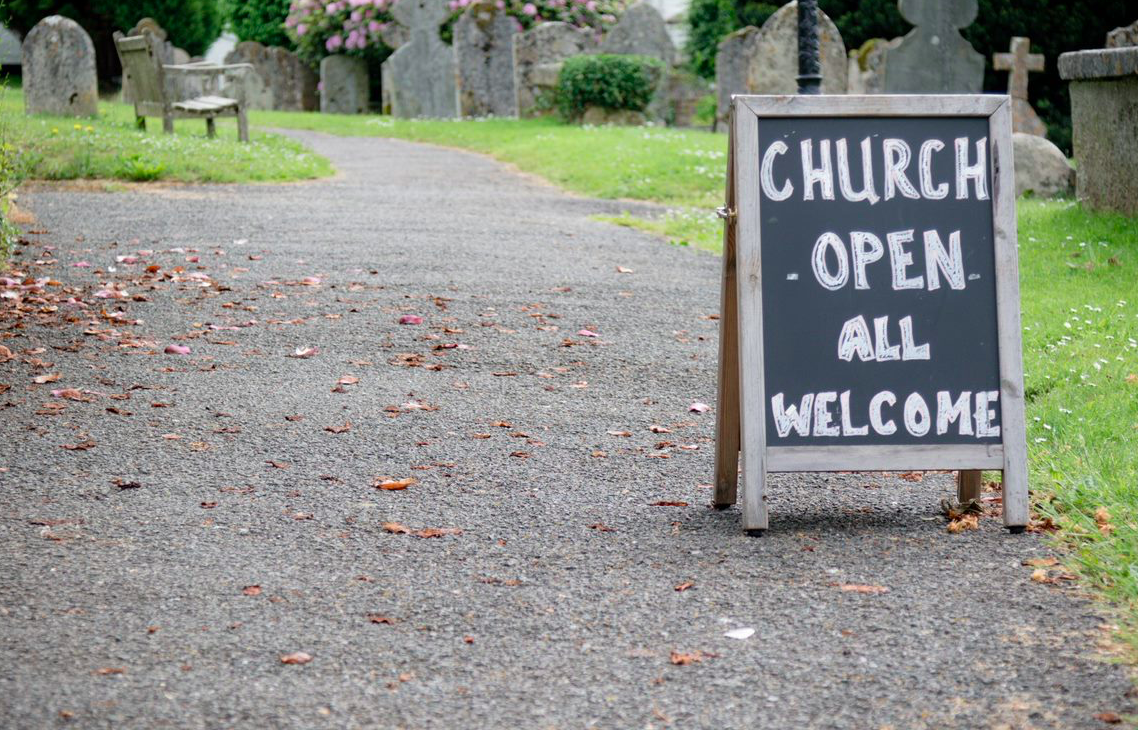The lockdown exemption for communal worship represents a dangerous double standard
Posted: Tue, 5th Jan 2021 by Stephen Evans
With the country again plunged into a strict lockdown, Stephen Evans questions the rationale behind and wisdom of an exemption for religious worship in England.
All parts of the United Kingdom have again been plunged into another lockdown. With hospitals under more pressure than at any time since the start of the COVID-19 pandemic, we are again facing tough restrictions on our lives and liberties. One key difference this time, however, is that in England, churches, mosques, synagogues and temples will remain open - not just for individual prayer, but for communal worship.
Any liberal society should place a very high premium on suspending civil liberties and restricting public gatherings – including religious ones. There may be good grounds to keep places of worship open in some circumstances, most obviously if they are acting as hubs for volunteering or charitable services. But permitting communal worship during a legally enforceable 'stay at home' rule will understandably raise eyebrows – not to mention infection levels.
With draconian restrictions on normal life currently commonplace, it's unsurprising to find some inconsistencies in the rules and guidance. But we should expect the government to value people equally, which means it should apply a consistent cost-benefit analysis when deciding to make exemptions to the current restrictions. And on that basis, the arguments that can be made in defence of the exemption for worship don't hold water.
In the new lockdown people across England will be told to stay at home unless for very specific reasons. We will only be allowed to exercise outdoors once per day. We may not meet socially with anyone outside our household or support bubble (although we're allowed to exercise with one other person). Schools have transitioned to remote working – a measure the government went to great lengths to avoid.
As the prime minister announced the latest lockdown there was no question that pubs, libraries or entertainment venues would be allowed to open. Communal sport outdoors is banned. What is the logic behind forcing outdoor sports venues, such as tennis courts, golf courses and swimming pools, to close, but allowing worshippers to gather under the same roof?
It may well be that many places of worship have been diligent in terms of managing risks and limiting numbers of attendees. But the same is true of many businesses which have been forced to close – some of them long ago.
Communal worship is, of course, important in the lives of many religious people, and any reasonable person would sympathise with those who wish to take part in worship but can't. But that's not a reason for the government to assign it any more or less importance than the secular pursuits that give other people purpose and meaning. Religious freedom is a qualified right; there shouldn't be a hierarchy of rights with religion at the top.
This exemption is also likely to increase the risk to some already vulnerable groups. Congregations in Anglican and Catholic churches tend to skew towards older people (which may be part of the reason why several priests expressed dismay at the exemption on social media on Monday night). According to the European Jewish Demography Unit, a disproportionate number of UK Jews have died during the pandemic. And the disproportionate mortality amongst black, Asian and minority ethnic people – who make up a large proportion of some minority religious groups – is well documented. In this context, sending out the message to religious communities that new lockdown restrictions don't necessarily apply to them appears reckless.
The exemption for worship also weakens the message that 'we're all in this together'. Inconsistencies and perceived double standards can reduce compliance – and so risks undermining the collective effort to suppress the virus. With so many of us making so many sacrifices, the special treatment for religious services will strike many people as unjustified exceptionalism and religious privilege.
And it seems likely that this policy has been influenced by extensive lobbying from religious interests. When the first lockdown was introduced in March last year, worship was treated roughly like other ways people chose to spend their time. And when that lockdown was eased, worship was initially allowed on similar terms to other activities. But in recent months some religious leaders and their cheerleaders have increasingly called for it to be treated as a special case.
In response ministers seem to be giving in for a quiet life. At least by the time the government introduced tier 4 restrictions in many areas last month, communal worship had become incongruous with the sweeping restrictions on people's lives elsewhere.
And a similar lockdown in Scotland, announced earlier on Monday and presumably based on very similar scientific evidence, has instructed places of worship to close. Is the difference perhaps an indication of the political clout of the Church of England?
Either way, the exemption in England indicates a worrying deference to religious entitlement. Let's hope it doesn't cost too many lives.
While you're here
Our news and opinion content is an important part of our campaigns work. Many articles involve a lot of research by our campaigns team. If you value this output, please consider supporting us today.


